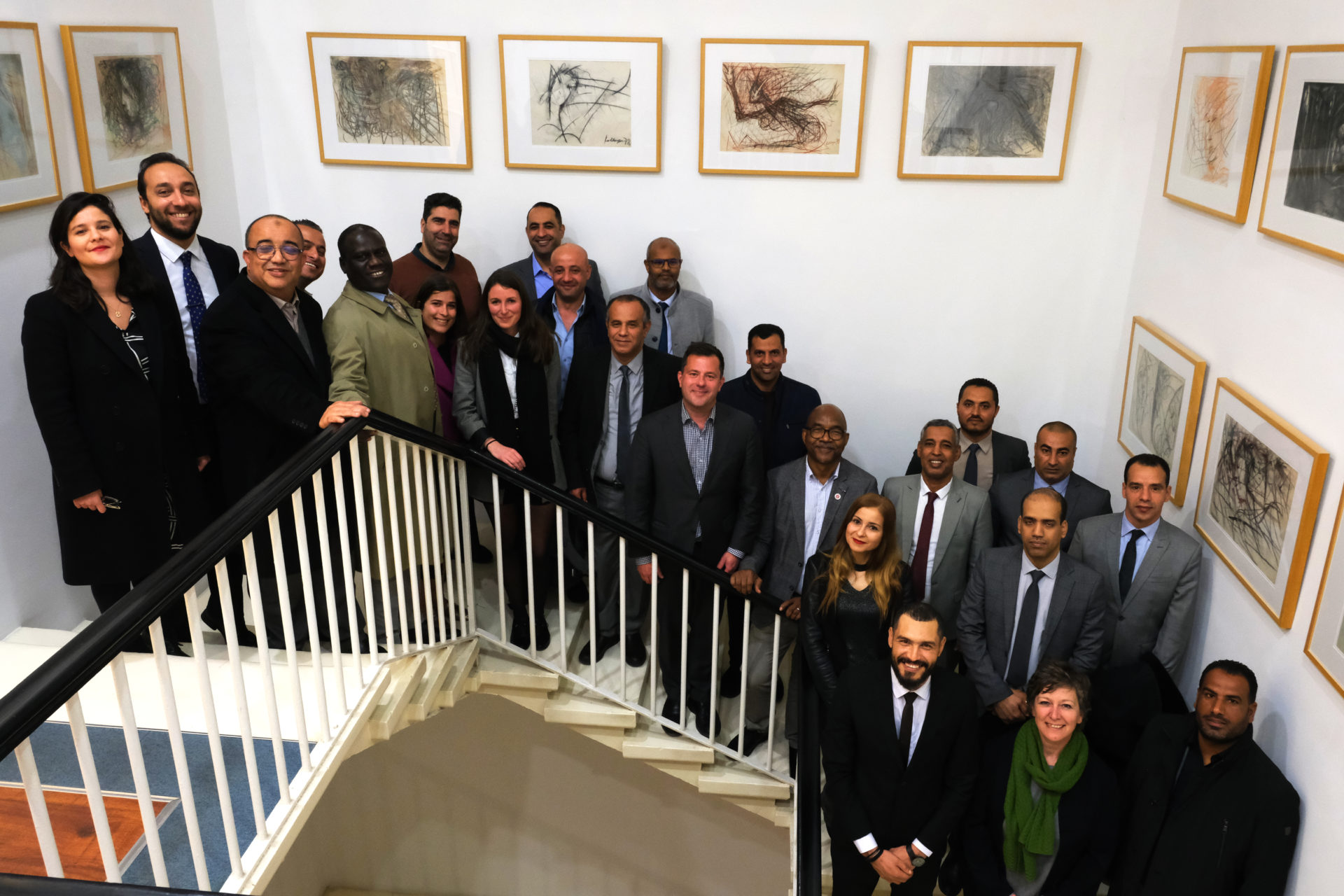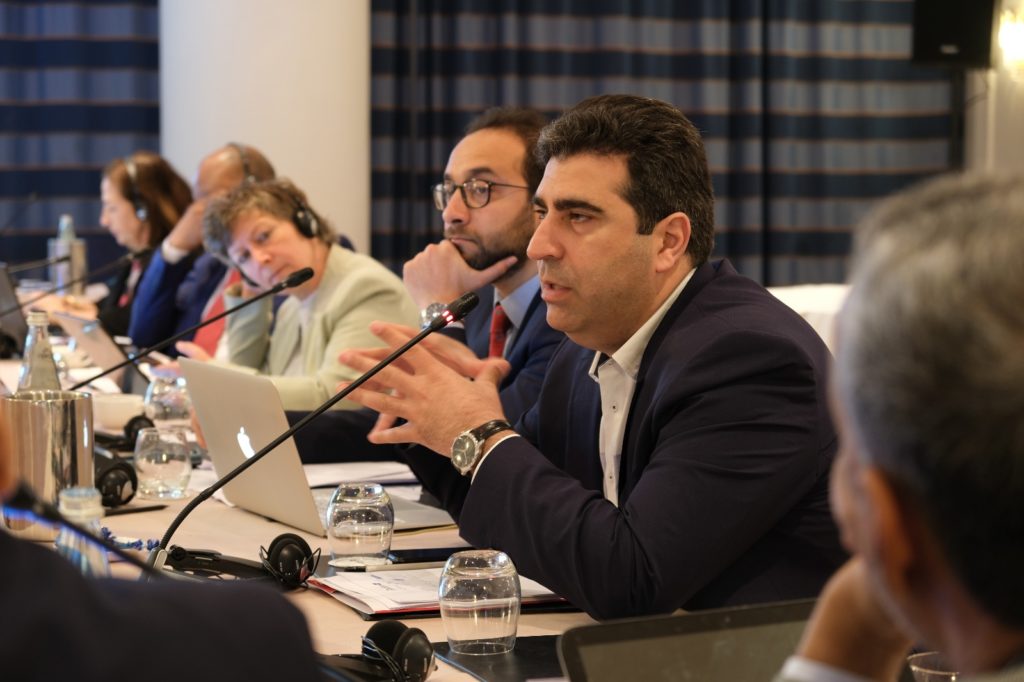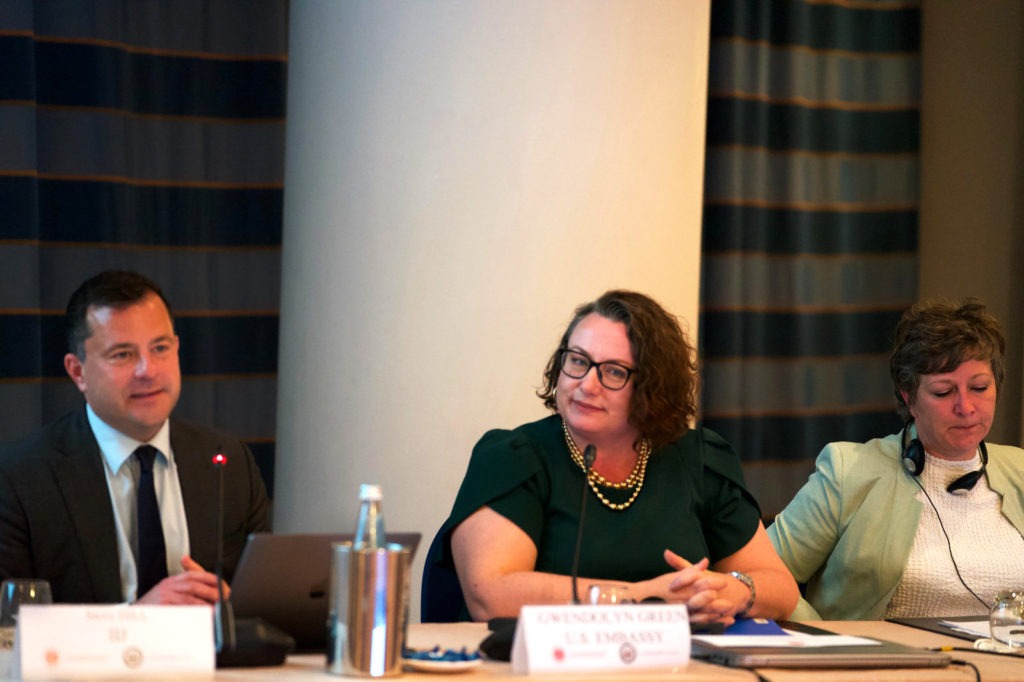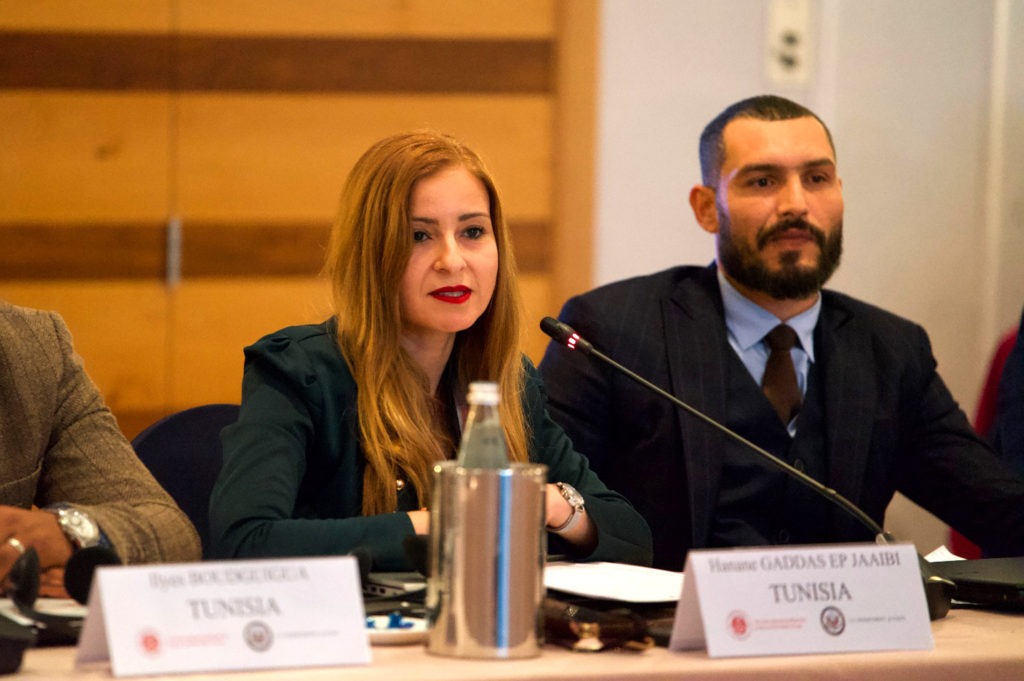
From 6 – 16 March, the IIJ Academic Unit delivered its first Arabic-language in-person course for frontline criminal justice practitioners from the Middle East and North Africa. The course employed a contextualised version of the Academic Unit’s ground-breaking Counter-Terrorism Academic Curriculum (CTAC) and built the skills and capacities of 16 police investigators, prosecutors, and examining judges from Algeria, Chad, Jordan, Mauritania, Morocco and Tunisia.

This immersive, foundational course – funded by the United States of America’s Department of State – aimed at strengthening practitioners’ core skills on conducting investigations and prosecutions of terrorist crimes through:
• Increased awareness of proportionate, reasonable and justifiable methods to investigate terrorism, in compliance with human rights, including special investigation techniques;
• Improved drafting and advocacy skills to accurately communicate facts and legal arguments;
• Implementation of efficient case management procedures to reduce trial delays;
• Improved participation of witnesses and victims in investigations and prosecutions of offenders, including through better protection mechanisms;
• Enhanced knowledge of international good practices for the effective investigation and prosecution of terrorism cases; and
• Strengthening international networks and international cooperation to improve evidence collection, mutual legal assistance and the extradition of offenders.
“This in-person CTAC enabled me to have solid knowledge in other legal systems in Arab countries,” reflected Ms Hanane Gaddas, Deputy Prosecutor in Tunisia. “I also learned more about organisations that exist on the ground…. Now I am very motivated to go back home and find ways of collaboration with these organisations.”

As with all CTAC courses, the instructors use interactive pedagogical methods through which the participants are required to solve problems and challenges which arise during the investigation of a hypothetical cross-border terrorism case. The process of active problem solving reinforces the relevant skills and good practices presented in the course materials. The problem-solving exercises allowed participants to deepen their fundamental knowledge and will facilitate the use and implementation of these new skills in their work in their national jurisdictions.
Speaking of this approach, Mr. Bilal Al Qatawneh, Public Security Judge from Jordan, reported: “This course has been a great opportunity for all of us to exchange experiences and knowledge through the collective exercises and taking decisions in groups, which is a way to show that now, thanks to the CTAC, we all have common ground.”
In addition, the course featured a number of important training sessions on contemporary criminal justice issues, such as detention, the nexus between organised crime and terrorism in the region, exploiting firearms and ammunition as critical evidence in investigations, and terrorist use of emerging technologies. These sessions were supported by many outside contributors from and working in the MENA region, representing organisations such as the Global Initiative against Transnational Organized Crime (GI-TOC) and Conflict Armament Research.

This fifth CTAC course welcomed practitioners who had previously worked together during either one of the Academic Unit’s many French-language or Arabic-language eCTAC courses on proactive investigations to consolidate and deepen participants’ networks and cooperation. Speaking to this, Ms. Gaddas noted, “Each course opens new horizons for me.”
Feedback on the CTAC course was positive and detailed how lessons learned during the course have been and could be translated into practical approaches to improve their work.
For more information on the CTAC, please contact Programme Manager Dallin Van Leuven: vanleuvend@theiij.org
